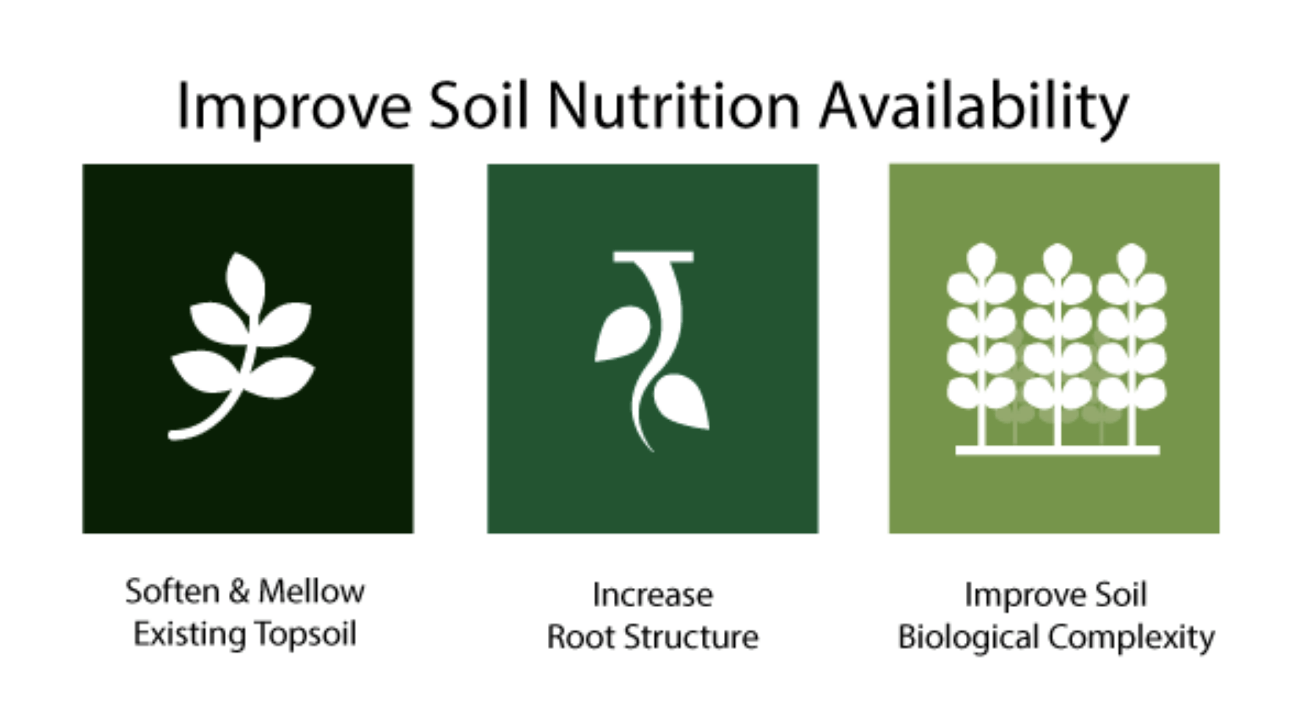What Products Improve Plant Nutrient Deficiency?
How Does Plant Nutrient Deficiency Affect Crop Production?
Optimal crop growth requires macronutrients, micronutrient and secondary plant nutrients in addition to air, water and sunlight. Basic nutrient requirements for health crops include carbon, hydrogen, oxygen, nitrogen, phosphorous, potassium, calcium, magnesium, sulfur, boron, chlorine, copper, iron, manganese, molybdenum and zinc. These nutrients combine to make the perfect environment for plant growth. When any of them are missing in the plant’s makeup, the crop will suffer from yellowing, stunted growth, deformed appearance, or event tainted taste. Nutrient deficiencies can be hard to diagnose as they might not appear in the physical attributes of the plant, require testing to truly ascertain. Due to differences in the soil makeup in the field, nutrient deficiencies might not even be uniform from crop to crop, making testing tricky to implement.
Why Won’t more Fertilizer Help my Plant Nutrient Deficiency Problem?
When crops show signs of nutrient deficiency, many farmers often resort to increasing inputs. Those inputs are often industrial chemical fertilizers rich in nitrogen, phosphorus, and potassium (NPK). Adding more fertilizer rarely solves nutrient deficiency problems, because nutrient deficiency is not the same as fertilizer deficiency. More often than not, you have a plant nutrient availability problem or soil degradation. Biological farming methods can help you increase plant nutrient availability.
Farmers that continuously up their fertilizer amounts will likely never maximize the growth potential that is already in their soil. If you continue to add nitrogen, phosphorus and potassium to your soil but are unable to rectify symptoms of nutrient deficiency, then you most likely are experiencing a nutrient release problem. The reality is that no amount of added fertilizer will solve your problem, if anything, it might make the problem worse.
Pro-soil can Improve Crop Yields with our Products
At Pro-Soil, we aim to help reduce inputs while producing larger harvests. Pro-Soil’s biotechnology products offer farmers the greatest potential to achieve minimum inputs and maximum yields by enabling to better manage the factors that drive input costs up. The program is simple; it’s easy and can be done without spending any more than you are right now.
FIND A FULL LIST OF OUR PRODUCTS HERE. IF YOU’RE READY FOR INCREASED YIELDS USING FEWER INPUTS, GIVE US A CALL AT 1-800-714-4903.
Other Practices to Implement Without Using our Cutting Edge Bio-Technological Products

Improving plant nutrient availability is a multi-step approach:
- Soften and mellow the existing topsoil. This can be achieved by reducing tillage and other uses of heavy farm equipment that causes soil compaction. This practice will also increase soil porosity. Increasing the soil’s porosity will improve root zone nutrient uptake and help to free up the fertilizers that you have already added.
- Increase the root structure on the crop. This is best accomplished through the use of Pro-Soil agricultural products, which have been found to increase root structure and improve root zone health. Soil Activators or bio-stimulants (like Pro-Soil) increase microbial activity that affects nutrient availability. Bio-stimulants, along with reducing soil compaction, improves plant root health, which improves overall crop production. Soybean farmers and alfalfa farmers have found products like PS-Starter Pro 1-3-1 to greatly expand root mass.
- Improve the biological complexity of the soil. This is what Pro-Soil products do best. For optimal results, use PS-Foundation, PS-Starter Pro, and Triple 3 (Vital Boost) to free up the nutrients that have become locked in your soil through increased soil biodiversity.
These biological soil management strategies are your surest bet for moving towards more bountiful crop yields. Remember, when it comes to fertilizer use, less is often more! Above all else, seek proper plant nutrient balance by avoiding over-fertilization.

